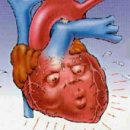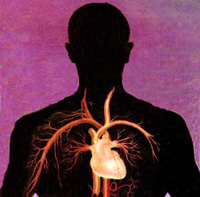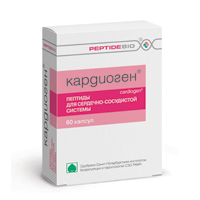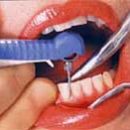What are the reasons for congenital heart defects? Is it possible to learn before the birth of the baby about the vice heart? Which allows the doctor to suspect an UPU in a newborn? What can allow parents to suspect the PCD child? Read in this article.
Content
What are the causes of the UPU?
Heart formation occurs on 2-8 weeks of pregnancy, and precisely during this period defects. They can be hereditary, and may occur under the influence of negative factors. Sometimes the UPU is combined with the definitions of the development of other organs, being a component of some hereditary syndromes (fetal alcohol syndrome, Down syndrome and T.D.).
TO Risk Groups The birth of a child with an UPU belongs to women:
- with spontaneous abortions (miscarriages) and stillbirths in history;
- older than 35 years;
- smoking and driving alcohol during pregnancy;
- In the families of which the PPU is noted as a hereditary disease, t.E. either they themselves or their relatives have an HPU; This also includes cases of stillbirths in the family and other anomalies;
- living in environmentally unfavorable areas;
- suffering during pregnancy infectious diseases (especially rubella);
- Some drugs that have used during pregnancy, such as sulfonamide drugs, some antibiotics, aspirin.
Predatal diagnostics of the UPU
 It is difficult to overestimate the value of prenatal (that is, the prenatal) diagnosis of UPU. Although many vices are radically treated in a surgical way in the first days of life, and some do not require surgical intervention, there are a number of situations where the child has a large number of life-sacked operations up to heart transplantation. Such a child is literally chained to the hospital bed, its growth and development are broken, social adaptation is limited.
It is difficult to overestimate the value of prenatal (that is, the prenatal) diagnosis of UPU. Although many vices are radically treated in a surgical way in the first days of life, and some do not require surgical intervention, there are a number of situations where the child has a large number of life-sacked operations up to heart transplantation. Such a child is literally chained to the hospital bed, its growth and development are broken, social adaptation is limited.
Fortunately, there is a possibility to predict the birth of a child with an UPU. To do this, every woman must start from the 14th week of pregnancy to undergo an ultrasonic survey of the fetus. Unfortunately, the informativeness of this method depends on the qualifications of the doctor performing research. Not every expert on the ultrasound of the female consultation is able to recognize the UPU, but even more so its type. However, it is obliged to suspect him and under the slightest doubt, as well as with the belonging to a woman to one or more of the above-described risk groups to send pregnant women to a specialized institution, whose doctors are aimed at the diagnosis of congenital heart disease.
If the fetus is detected, Parents receive information about the estimated viability of the child, the severity of his pathology, the upcoming treatment. In this situation, a woman has the opportunity to interrupt pregnancy. If she decides to give birth to this child, childbirth occur in a specialized hospital under the close observation of specialists, and the child is operated on in the minimum time. In addition, in some cases, the mother begins to take certain drugs before childbirth, which, penetrating through the placental barrier to the child will be "support" his blood circulation system before childbirth.
Which allows the doctor to suspect an UPU in a newborn?
There are a number of signs that allow immediately or a few days after birth to assume the presence of a child.
Cardiac noise, arising when the normal blood flow is disturbed (blood either passes through the abnormal holes, or meets the narrowing on its path, or changes the direction) - that is, the pressure changes between the cavities of the heart are formed and turbulent (vortex) streams are formed instead of linear blood flow. However, the children of the first days of life noise are not a reliable sign of the UPU. Due to high pulmonary resistance during this period the pressure in all cavities of the heart remains the same, and blood flows through them smoothly, without creating noise. The doctor can hear noise only for 2-3 days, but then they cannot be considered as an unconditional sign of pathology, if you remember about the availability of fetal messages. Thus, if adult cardiac noises almost always indicate the presence of pathology, in newborns they become diagnostically significant only in combination with other clinical manifestations. However, the child with noise needs to be observed. If noises remain after 4-5 days, the doctor may suspect on the UPU.
Cyanosis, or sinusiness of skin. Depending on the type of vice, the blood to one degree or another is depleted with oxygen, which creates a characteristic color of the skin. Cianoz is a manifestation of not only the pathology from the heart and blood vessels. It also meets for diseases of the respiratory organs, the central nervous system. There are a number of diagnostic techniques that allow you to determine the origin of the cyanosis.
Heart failure. Under heart failure, the condition arising due to a reduction in the pump function. Blood is stood in the venous vein, and the blood supply to organs and tissues decreases. With UPU, the cause of heart failure is the overload of various parts of the heart with abnormal blood flows. Recognize the presence of heart failure in a newborn is quite difficult, since such classical signs of its signs, as an increase in heart rate, respiratory frequency, increased liver, swelling, are generally characteristic of the state of the newborn. Only being excessively pronounced, these symptoms may be signs of heart failure.
Spasm of peripheral vessels. Usually, the spasm of peripheral vessels is manifested by pale and cold the limbs, the tip of the nose. It develops as a compensatory reaction in heart failure.
Disorders of the characteristics of the electrical activity of the heart (rhythm and conductivity). The doctor can determine their either auscultative (using the phononendoscope) or by electrocardiogram.
What can allow parents to suspect the PCD child?
Heavy heart defects are usually recognized in the maternity hospital. However, if the pathology is implicit, the child can write home. What may notice parents? If the child is sluggish, it sucks badly, often jumps out, shines when screaming or at the time of feeding, the heart rate is above 150 d./ Min., then you will certainly need to pay attention to this pediatrician.









